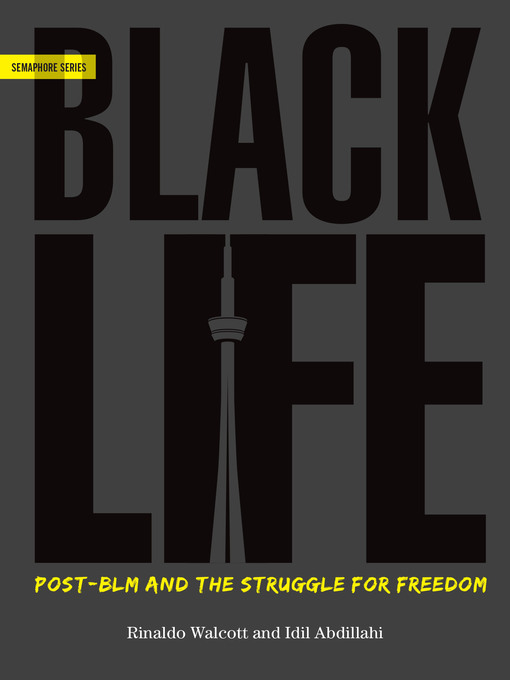What does it mean in the era of Black Lives Matter to continue to ignore and deny the violence that is the foundation of the Canadian nation state? BlackLife discloses the ongoing destruction of Black people as enacted not simply by state structures, but beneath them in the foundational modernist ideology that underlies thinking around migration and movement, as Black erasure and death are unveiled as horrifically acceptable throughout western culture. With exactitude and celerity, Idil Abdillahi and Rinaldo Walcott pull from local history, literature, theory, music, and public policy around everything from arts funding, to crime and mental health––presenting a convincing call to challenge pervasive thought on dominant culture's conception of Black personhood. They argue that artists, theorists, activists, and scholars offer us the opportunity to rethink and expose flawed thought, providing us new avenues into potential new lives and a more livable reality of BlackLife.
- Always Available eBooks
- Unreliable Narrators
- Pretty in Pink Covers
- New eBook additions
- This Seat Taken?
- WWII Historical Fiction
- A Bouquet of Books: Fabulous Floral Covers
- Science for Non-Scientists
- True Adventure Stories
- Available now
- Most popular
- See all
- Always Available Audiobooks
- New audiobook additions
- Read by a Celeb
- Audiobook Award Winners and Finalists
- Audiobook Essays
- Most Popular Adult Non-Fiction Audiobooks
- Action Packed Adventure Audiobooks
- Read by the Author
- Most Popular Audio Under 3 Hours
- Family Dramas
- Available now
- Most popular
- See all

